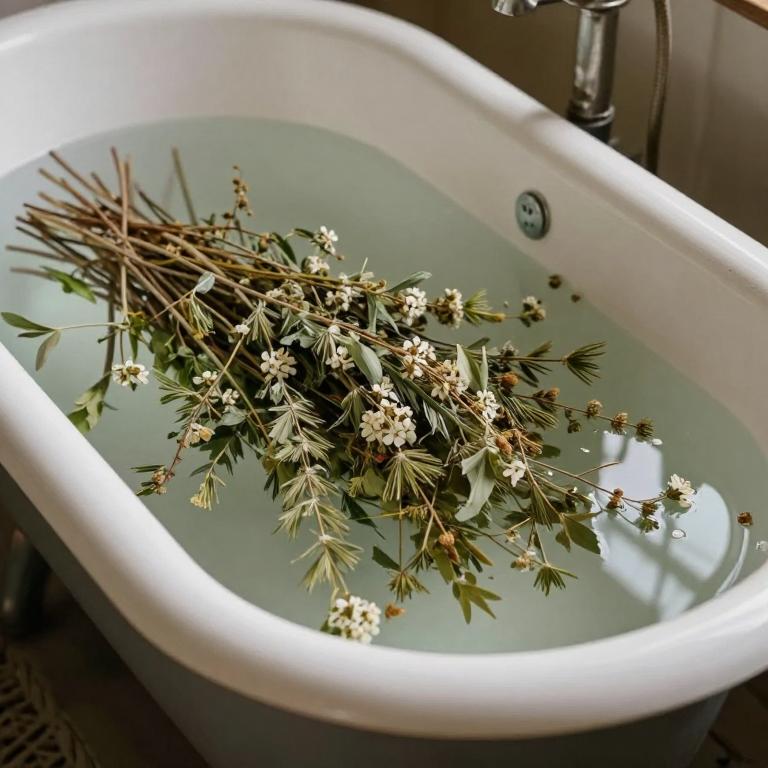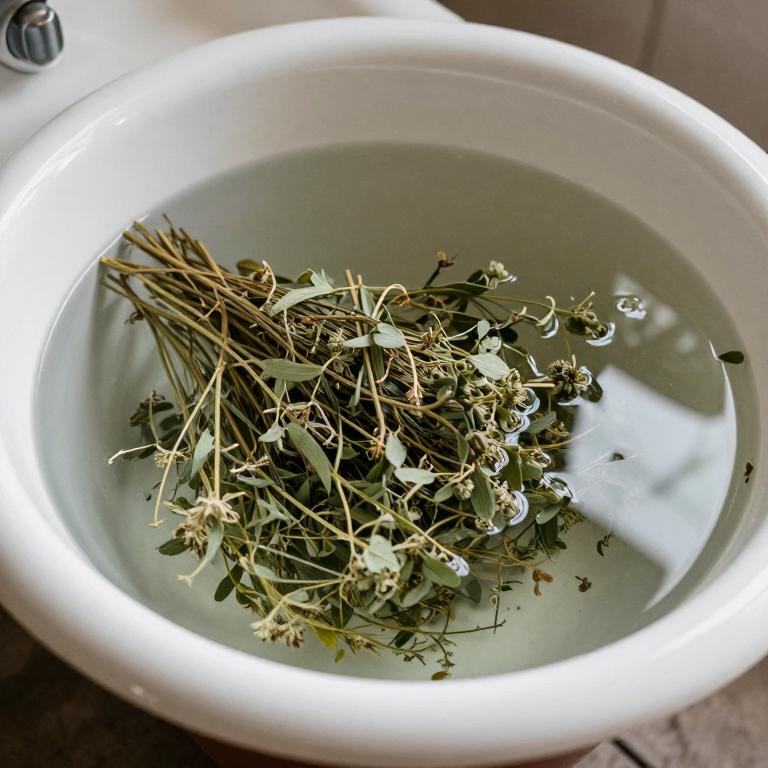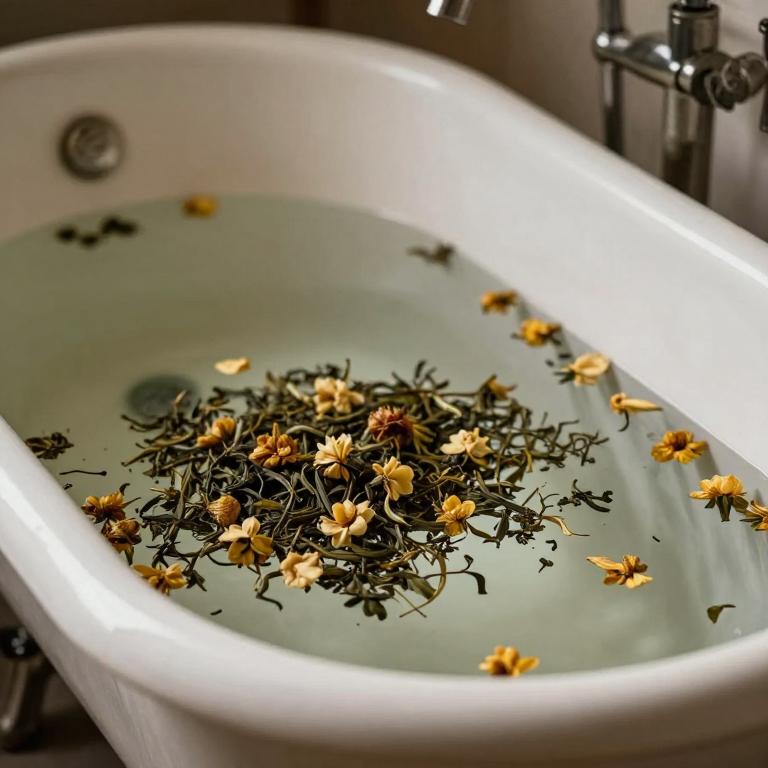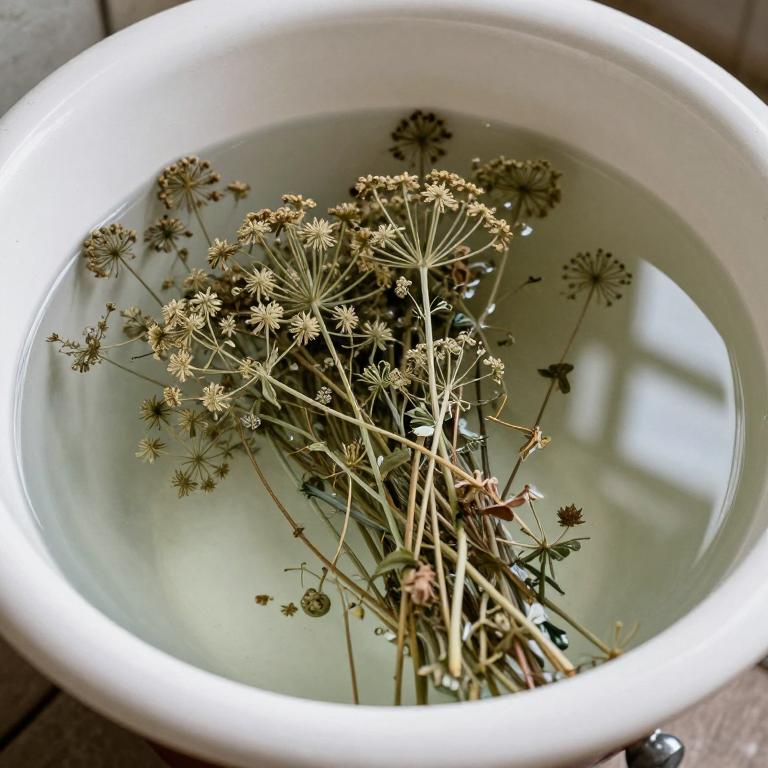10 Best Herbal Baths For Stress

Herbal baths for stress offer a natural and soothing way to relax and unwind.
Certain herbs, such as lavender, chamomile, and eucalyptus, are known for their calming properties and can help reduce anxiety and promote a sense of well-being. Adding these herbs to a warm bath allows their essential oils to release into the water, creating a therapeutic environment that calms the mind and eases muscle tension. Regular use of herbal baths can be an effective complementary therapy for managing daily stress and improving sleep quality.
Overall, herbal baths provide a gentle and accessible method for enhancing mental health and relaxation.
Table of Contents
- 1. Valerian (Valeriana officinalis)
- 2. English lavender (Lavandula angustifolia)
- 3. Rosemary (Rosmarinus officinalis)
- 4. St. john's wort (Hypericum perforatum)
- 5. Stinging nettle (Urtica dioica)
- 6. Lemon balm (Melissa officinalis)
- 7. Salvia (Salvia officinalis)
- 8. Camellia (Camellia sinensis)
- 9. Yarrow (Achillea millefolium)
- 10. Anise (Pimpinella anisum)
1. Valerian (Valeriana officinalis)

Valeriana officinalis, commonly known as valerian, is a herbal remedy traditionally used to alleviate stress and promote relaxation.
When used in herbal baths, valerian’s soothing properties can help reduce anxiety and improve sleep quality by calming the nervous system. To prepare a valerian bath, steep dried valerian root in hot water for several hours, then add the infused liquid to a warm bath. The aromatic compounds in valerian are absorbed through the skin, offering a gentle and natural way to ease mental tension.
Regular use of valerian baths may support overall emotional well-being and help manage chronic stress.
2. English lavender (Lavandula angustifolia)

Lavandula angustifolia, commonly known as English lavender, is widely used in herbal baths for its calming and soothing properties.
When added to warm water, the essential oils released from dried lavender flowers can help reduce stress and promote relaxation. The pleasant aroma of lavender has been shown to lower cortisol levels and ease anxiety, making it an effective natural remedy for tension. Herbal baths with lavender can also improve sleep quality and ease muscle aches, offering a holistic approach to stress relief.
Incorporating lavender into a bath routine can create a peaceful self-care ritual that supports emotional well-being.
3. Rosemary (Rosmarinus officinalis)

Rosmarinus officinalis, commonly known as rosemary, is a fragrant herb that has been traditionally used for its calming and stress-relieving properties.
Incorporating rosemary into herbal baths can help soothe the mind and promote relaxation by stimulating the senses and encouraging a sense of well-being. When infused into bath water, rosemary's essential oils release a refreshing aroma that can ease tension and reduce mental fatigue. This natural remedy is particularly beneficial for those seeking a peaceful way to unwind after a stressful day.
Regular use of rosemary herbal baths may support overall mental health and enhance the body's natural ability to manage stress.
4. St. john's wort (Hypericum perforatum)

Hypericum perforatum, commonly known as St. John's Wort, has been traditionally used for its calming and mood-enhancing properties, making it a popular choice for herbal baths aimed at reducing stress.
When infused into bath water, the active compounds in hypericum perforatum, such as hyperforin and hypericin, can be absorbed through the skin, promoting relaxation and a sense of well-being. The gentle warmth of the bath combined with the soothing effects of the herb helps to ease tension and calm the nervous system. Many people find that soaking in a hypericum perforatum bath can alleviate symptoms of anxiety and improve sleep quality.
However, it is important to consult with a healthcare provider before use, especially if taking other medications, due to potential interactions.
5. Stinging nettle (Urtica dioica)

Urtica dioica, commonly known as stinging nettle, has been traditionally used in herbal baths to alleviate stress and promote relaxation.
When steeped in warm water, the leaves of this plant release compounds that may help soothe the nervous system and reduce feelings of anxiety. The anti-inflammatory and calming properties of stinging nettle are believed to support the body's natural ability to manage stress. Herbal baths with urtica dioica can also enhance circulation and ease muscle tension, contributing to an overall sense of well-being.
Incorporating stinging nettle into a regular self-care routine may offer a gentle and natural way to support emotional balance and reduce stress levels.
6. Lemon balm (Melissa officinalis)

Melissa officinalis, commonly known as lemon balm, is a versatile herb often used in herbal baths to help reduce stress and promote relaxation.
When infused into bathwater, lemon balm releases calming compounds that can soothe the nervous system and ease anxiety. The gentle, citrusy aroma of lemon balm has a pleasant and uplifting effect, making it ideal for creating a peaceful bath environment. Regular use of lemon balm baths can help alleviate symptoms of stress and improve overall mood and sleep quality.
This natural remedy is a safe and effective way to incorporate aromatherapy into a self-care routine for emotional well-being.
7. Salvia (Salvia officinalis)

Salvia officinalis, commonly known as sage, has been traditionally used in herbal baths to promote relaxation and reduce stress.
When infused into bath water, sage's essential oils and phytochemicals are believed to have calming effects on the mind and body. The aromatic properties of sage can help soothe the nervous system, making it an effective natural remedy for stress relief. Herbal baths with sage are often recommended for those seeking a tranquil, aromatherapeutic experience.
Regular use of sage-infused baths may contribute to improved mood and a greater sense of well-being.
8. Camellia (Camellia sinensis)

Camellia sinensis, commonly known as the plant from which green and black teas are derived, has been traditionally used in herbal baths to promote relaxation and reduce stress.
The infusion of Camellia sinensis leaves in bath water releases compounds like caffeine and L-theanine, which are believed to have calming effects on the nervous system. These baths can help soothe muscles, improve circulation, and encourage a sense of well-being. By incorporating Camellia sinensis into a bathing routine, individuals may experience a gentle yet effective way to manage daily stress and enhance their overall mood.
This natural approach aligns with holistic wellness practices that emphasize the connection between physical and mental health.
9. Yarrow (Achillea millefolium)

Achillea millefolium, commonly known as yarrow, has been traditionally used in herbal baths to alleviate stress and promote relaxation.
When infused into bath water, yarrow's mild antispasmodic and sedative properties help calm the nervous system, easing anxiety and tension. The soothing aroma of yarrow can also enhance the sensory experience of a bath, fostering a sense of peace and tranquility. Regular use of yarrow herbal baths may support emotional well-being by reducing feelings of overwhelm and promoting a deeper sense of calm.
This natural remedy offers a gentle and accessible way to integrate stress relief into daily self-care routines.
10. Anise (Pimpinella anisum)

Pimpinella anisum, commonly known as anise, has been traditionally used in herbal baths to help alleviate stress and promote relaxation.
The essential oils derived from anise seeds contain compounds like anethol, which are known for their calming and soothing properties. When added to warm bath water, anise can help ease muscle tension and reduce feelings of anxiety, making it a natural remedy for stress relief. The aromatic scent of anise also stimulates the senses and can create a peaceful atmosphere that encourages mental relaxation.
Regular use of anise-infused baths may contribute to a sense of overall well-being and emotional balance.